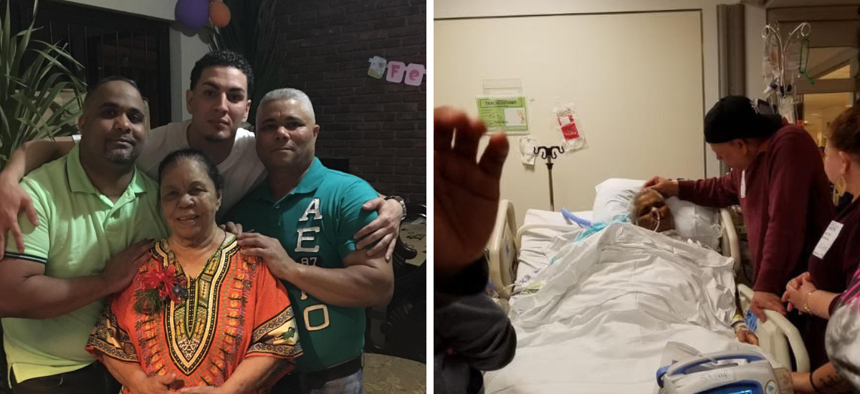New York Legislature Passes Prison Surveillance Reforms Amidst Criticism
New legislation calls for increased surveillance within prison facilities, with a particular focus on expanding the role of oversight bodies that regulate correctional systems. Passed on a recent Thursday, this comprehensive measure is centered on enhancing transparency within the New York prison system. It’s the first significant law to be ratified since the alleged in-custody deaths of two individuals at different correctional institutions in upstate New York.
The legislative move is viewed by leaders in Albany as an important stride towards addressing persistent issues of violence in the state’s prisons. However, critics argue the implemented measures fall short, particularly among supporters of more rigorous criminal justice reform. These critics contend that the actions taken by state Democrats were not sufficiently comprehensive.
Under the new law, public disclosure is required in the event of a prisoner’s death. Furthermore, if a prison guard is implicated in the death, associated video recordings must be released. The legislation also mandates a state-conducted investigation into deaths within correctional facilities, coupled with the provision of appropriate recommendations.
The inclusive legislation, composed of roughly 10 distinct actions, now moves forward to Governor Kathy Hochul for approval. A representative for Governor Hochul has indicated that she will undertake a comprehensive review of the proposed law.
This legislative session, with New York Democrats focus largely on prison reform, was significantly influenced by the deaths of two African-American men in custody, 43-year-old Robert Brooks and 22-year-old Messiah Nantwi. The tragic events brought to light the severity of violence within the state’s correctional institutions and led to noteworthy public pressure for change.
The progress of legislative reform was interrupted by procedural hold-ups and an unsanctioned three-week prison strike, exposing widespread job dissatisfaction among correctional officers. But despite these obstacles, the comprehensive legislative package has been met with criticism from progressive factions, mainly due to its lack of modifications to the state’s parole procedures, along with its failure to provide judges with the chance to reconsider long-term sentences.
More than 20 bills were endorsed by the Black, Puerto Rican, Hispanic & Asian Legislative Caucus, including those two potential revisions. They named this collection of rehabilitation and reform proposals the ‘Robert Brooks Blueprint for Justice and Reform.’ While this diverse group of lawmakers acknowledged the step forward taken by the inclusive bill, they emphasized the need for continuous work towards a more comprehensive solution.
Legal Aid Society has issued a statement expressing deep concern about how the reforms may fail to address ongoing systemic issues. Without significant modifications, the organization warns, the justice system might continue to disproportionately affect communities of color, particularly given the apparent impunity correctional staff appear to have when those in their care are subjected to abuse.
During a Thursday press briefing, several key policy makers involved in the legislation’s passage conceded the bill did not cover all of their initial ambitions. State Senator Julia Salazar, a Brooklyn Democrat leading the Committee on Crime Victims, Crime, and Correction in her chamber, stressed that the primary objective of the day was to hold the Department of Corrections and Community Supervision accountable, striving to enhance transparency and improve the state’s prison system.
Assemblymember Erik Dilan, a Brooklyn Democrat and Salazar’s lower chamber counterpart, agreed the legislation doesn’t represent a complete victory but a step towards the right direction. One notable omission from the inclusive law was the Earned Time Act, which would have opened up more opportunities for incarcerated individuals to reduce their sentences based on good conduct and participation in educational and self-improvement programs.
Earlier in the year, Governor Hochul and state legislators had initiated discussions around provisions for earned time while working through the state’s budget, but couldn’t arrive at an agreement. State Senator Jeremy Cooney, a Rochester Democrat and the bill’s co-sponsor, communicated his belief that excluding the Earned Time Act and a few other bills from the legislation represented a missed opportunity, especially considering the progress initially made during the protracted budget discussions.
Additional attempts were made by lawmakers to insert versions of these bills into the finalized legislation, but no agreement was found among legislators in both chambers. Assemblymember Dilan stated that while there is conceptual agreement around the idea of rewarding good behavior and earned time, disagreement over the specifics—such as the amount of time that can be earned—posed a significant obstacle.
Some opposition for the legislation came from Republicans, contending it does not directly address the grievances brought forward by correctional officers. These personnel highlighted the surge of violence within the prison system and demanded the reinstatement of colleagues dismissed for their stands during strike action.

